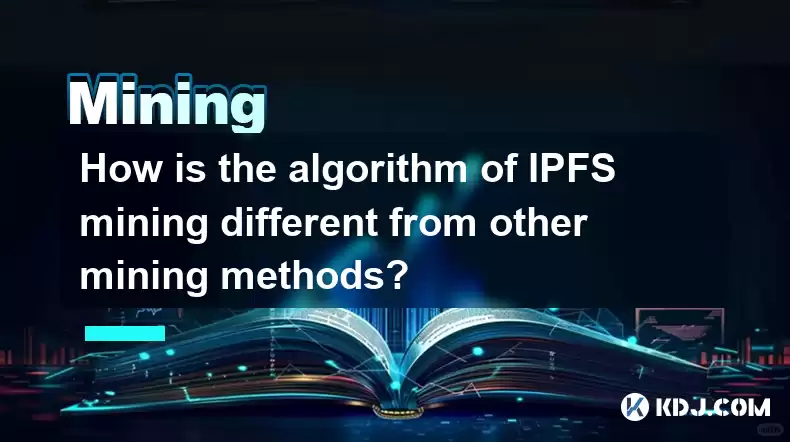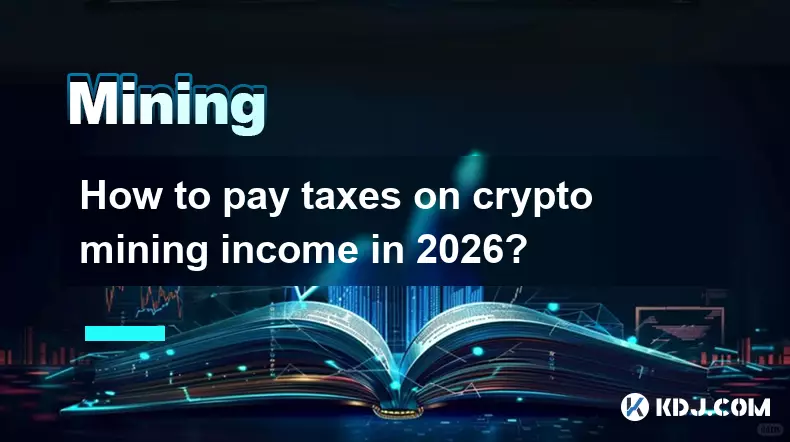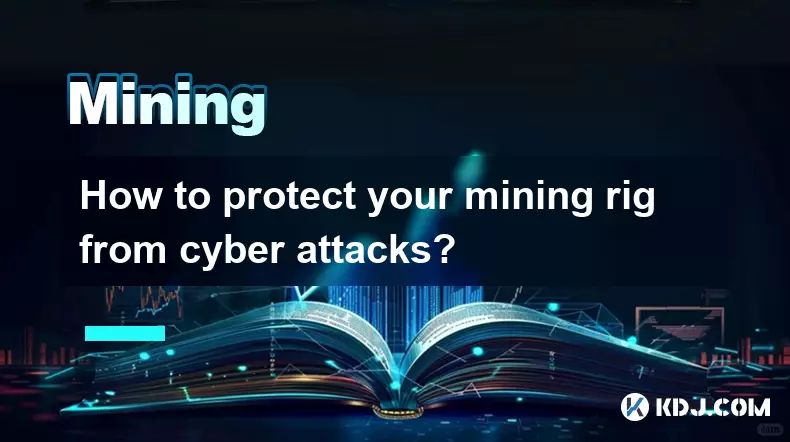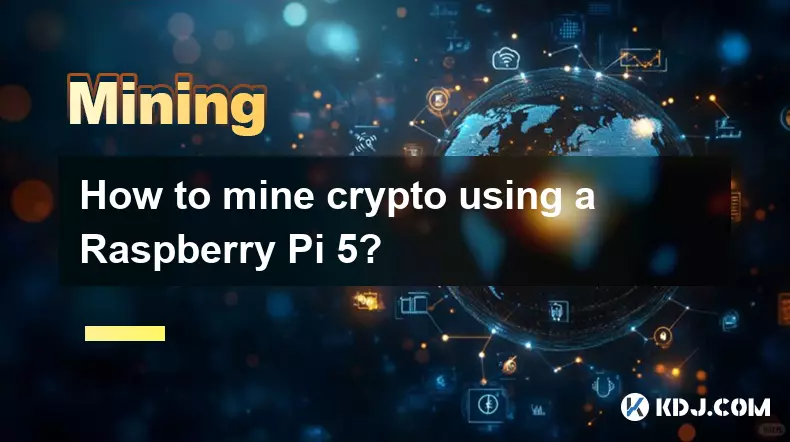-
 bitcoin
bitcoin $87959.907984 USD
1.34% -
 ethereum
ethereum $2920.497338 USD
3.04% -
 tether
tether $0.999775 USD
0.00% -
 xrp
xrp $2.237324 USD
8.12% -
 bnb
bnb $860.243768 USD
0.90% -
 solana
solana $138.089498 USD
5.43% -
 usd-coin
usd-coin $0.999807 USD
0.01% -
 tron
tron $0.272801 USD
-1.53% -
 dogecoin
dogecoin $0.150904 USD
2.96% -
 cardano
cardano $0.421635 USD
1.97% -
 hyperliquid
hyperliquid $32.152445 USD
2.23% -
 bitcoin-cash
bitcoin-cash $533.301069 USD
-1.94% -
 chainlink
chainlink $12.953417 USD
2.68% -
 unus-sed-leo
unus-sed-leo $9.535951 USD
0.73% -
 zcash
zcash $521.483386 USD
-2.87%
How is the algorithm of IPFS mining different from other mining methods?
Unlike Bitcoin mining's computational focus, IPFS mining rewards users for providing storage and bandwidth to the decentralized network, incentivizing long-term data availability and network stability.
Mar 20, 2025 at 04:21 am

- IPFS mining differs fundamentally from traditional cryptocurrency mining like Bitcoin or Ethereum mining. It focuses on storage and bandwidth contribution rather than computational power.
- Instead of solving complex cryptographic puzzles, IPFS miners provide storage space and network bandwidth to the decentralized network.
- Rewards in IPFS mining are tied to the quality and availability of the storage and bandwidth provided, unlike the fixed block rewards in Proof-of-Work systems.
- The economic incentives within IPFS mining are designed to encourage long-term data storage and network stability.
- Several projects build on IPFS, offering various approaches to mining and earning rewards. Understanding these nuances is crucial.
Traditional cryptocurrency mining, such as Bitcoin's Proof-of-Work (PoW) mechanism, relies on miners competing to solve complex mathematical problems using specialized hardware. The first miner to solve the problem adds a new block to the blockchain and receives a block reward. This process consumes significant energy. IPFS, on the other hand, employs a different paradigm. It's not about solving puzzles; it's about contributing valuable resources.
IPFS mining focuses on providing storage and bandwidth to the network. Miners dedicate hard drive space to store files and make their bandwidth available for sharing data. This contributes to the overall health and resilience of the decentralized storage network. The more storage and bandwidth a miner provides, and the more consistently available these resources are, the higher the potential rewards. This is a key difference—the algorithm rewards utility, not computational power.
The reward mechanism in IPFS mining is not based on a fixed block reward like in PoW systems. Instead, it's often tied to the amount of storage provided, the data's retrieval speed, and the miner's network uptime. The value of the reward can fluctuate depending on network demand and the overall health of the IPFS network. Some projects might also incorporate token-based reward systems, rewarding participants with their native tokens.
Unlike PoW, IPFS mining is significantly more energy-efficient. While hard drives consume power, the energy consumption is considerably less compared to the energy-intensive ASICs used in Bitcoin mining. This makes IPFS mining a more environmentally friendly option. The focus shifts from raw computational power to reliable storage and bandwidth provision.
Several projects have emerged that leverage the IPFS network and offer their own unique approaches to mining. These projects may use different tokenomics, reward systems, and even storage requirements. For example, some might focus on incentivizing long-term storage, while others might prioritize fast retrieval speeds. It's important to research individual projects thoroughly to understand their specific mining mechanisms and potential risks.
Different Approaches to IPFS Mining:There isn't a single, universally accepted "IPFS mining" algorithm. Instead, various projects build on top of the IPFS network and implement their own incentive mechanisms. These approaches might include:
- Filecoin: Filecoin is a decentralized storage network built on top of IPFS. It utilizes a Proof-of-Replication and Proof-of-Spacetime consensus mechanism to reward miners for storing and retrieving data. This involves proving the storage of data and its availability.
- Other Storage Networks: Numerous other projects leverage the IPFS infrastructure but use alternative consensus mechanisms and reward structures. These may involve staking, delegated proof-of-stake, or other innovative approaches to incentivize participation.
- Community-Driven Initiatives: Some community-driven projects might incentivize IPFS node operation through grants, donations, or other forms of community support.
Understanding the specific requirements and reward mechanisms of each project is crucial before participating in any IPFS-related mining activity.
Frequently Asked Questions:Q: Is IPFS mining profitable?A: The profitability of IPFS mining depends on several factors, including the cost of hardware (hard drives, bandwidth), the price of any associated tokens, the storage space provided, and the demand for storage on the network. Profitability is not guaranteed and can be highly variable.
Q: What hardware is needed for IPFS mining?A: The hardware requirements depend on the chosen project and your desired level of participation. Generally, you will need a computer with sufficient storage space (hard drives or SSDs) and a stable internet connection with sufficient bandwidth. The amount of storage and bandwidth needed varies significantly.
Q: Is IPFS mining environmentally friendly?A: Compared to Proof-of-Work cryptocurrencies, IPFS mining is significantly more energy-efficient. The energy consumption is primarily determined by the hard drives and network connectivity, which are considerably less energy-intensive than ASIC miners used in PoW systems.
Q: How can I get started with IPFS mining?A: Getting started involves researching specific projects built on IPFS, such as Filecoin. Each project has its own setup and participation requirements, which typically involve downloading and installing their software, setting up your storage, and potentially staking tokens. Carefully review each project's documentation before proceeding.
Q: What are the risks associated with IPFS mining?A: The risks include hardware failure, network outages, fluctuations in token prices (if applicable), and the potential for project failure. Thorough research and risk assessment are essential before investing time and resources into IPFS mining.
Q: How does IPFS differ from other decentralized storage solutions?A: IPFS provides a content-addressable, peer-to-peer file system, while other solutions may use different approaches to data storage and retrieval. IPFS's focus on decentralization and content addressing makes it a unique platform for building decentralized storage applications. However, its implementation and the way it's incentivized varies across different projects.
Disclaimer:info@kdj.com
The information provided is not trading advice. kdj.com does not assume any responsibility for any investments made based on the information provided in this article. Cryptocurrencies are highly volatile and it is highly recommended that you invest with caution after thorough research!
If you believe that the content used on this website infringes your copyright, please contact us immediately (info@kdj.com) and we will delete it promptly.
- Bithumb's Bitcoin Bonanza: An Accidental Windfall Triggers Localized Market Dump
- 2026-02-07 10:10:01
- Big Apple Bites: While Ethereum Grapples, DeepSnitch AI Whispers of a 1000x Run
- 2026-02-07 06:30:02
- Token cat appointments furong tian to lead audit Amdst Strategic Reshffle
- 2026-02-07 06:40:01
- Coinbase Expands Roadmap, Navigating Cryptocurrency's Evolving Landscape
- 2026-02-07 10:05:02
- Bitcoin Price Surge Amidst Record Bitfinex Longs and Margin Buying Frenzy
- 2026-02-07 09:55:01
- Shiba Inu Price Eyes Historic Floor: Analysts Weigh In on SHIB's Current Price and Future Potential
- 2026-02-07 10:00:02
Related knowledge

How to mine Conflux on a standard gaming laptop?
Feb 07,2026 at 04:19am
Hardware Requirements for Conflux Mining1. Conflux uses a proof-of-work consensus mechanism called Tree-Graph, which is designed to be ASIC-resistant ...

How to pay taxes on crypto mining income in 2026?
Feb 07,2026 at 01:20am
Tax Classification of Mining Rewards1. Cryptocurrency received as mining rewards is treated as ordinary income by most major tax jurisdictions includi...

How to protect your mining rig from cyber attacks?
Feb 05,2026 at 09:40pm
Secure Firmware Updates1. Always verify the digital signature of firmware before installation to ensure authenticity and integrity. 2. Disable automat...

How to mine crypto using a Raspberry Pi 5?
Feb 07,2026 at 08:00am
Hardware Requirements for Raspberry Pi 5 Mining1. A Raspberry Pi 5 unit with at least 4GB of RAM is essential for stable operation under continuous co...

How to track mining rewards on a mobile app?
Feb 05,2026 at 09:19pm
Understanding Mining Reward Tracking Interfaces1. Mobile applications designed for cryptocurrency mining often integrate real-time dashboards that dis...

How to install liquid cooling on a mining rig?
Feb 06,2026 at 08:00am
Liquid Cooling System Components1. A complete liquid cooling setup for a mining rig includes water blocks designed specifically for GPUs, a reservoir ...

How to mine Conflux on a standard gaming laptop?
Feb 07,2026 at 04:19am
Hardware Requirements for Conflux Mining1. Conflux uses a proof-of-work consensus mechanism called Tree-Graph, which is designed to be ASIC-resistant ...

How to pay taxes on crypto mining income in 2026?
Feb 07,2026 at 01:20am
Tax Classification of Mining Rewards1. Cryptocurrency received as mining rewards is treated as ordinary income by most major tax jurisdictions includi...

How to protect your mining rig from cyber attacks?
Feb 05,2026 at 09:40pm
Secure Firmware Updates1. Always verify the digital signature of firmware before installation to ensure authenticity and integrity. 2. Disable automat...

How to mine crypto using a Raspberry Pi 5?
Feb 07,2026 at 08:00am
Hardware Requirements for Raspberry Pi 5 Mining1. A Raspberry Pi 5 unit with at least 4GB of RAM is essential for stable operation under continuous co...

How to track mining rewards on a mobile app?
Feb 05,2026 at 09:19pm
Understanding Mining Reward Tracking Interfaces1. Mobile applications designed for cryptocurrency mining often integrate real-time dashboards that dis...

How to install liquid cooling on a mining rig?
Feb 06,2026 at 08:00am
Liquid Cooling System Components1. A complete liquid cooling setup for a mining rig includes water blocks designed specifically for GPUs, a reservoir ...
See all articles










































































